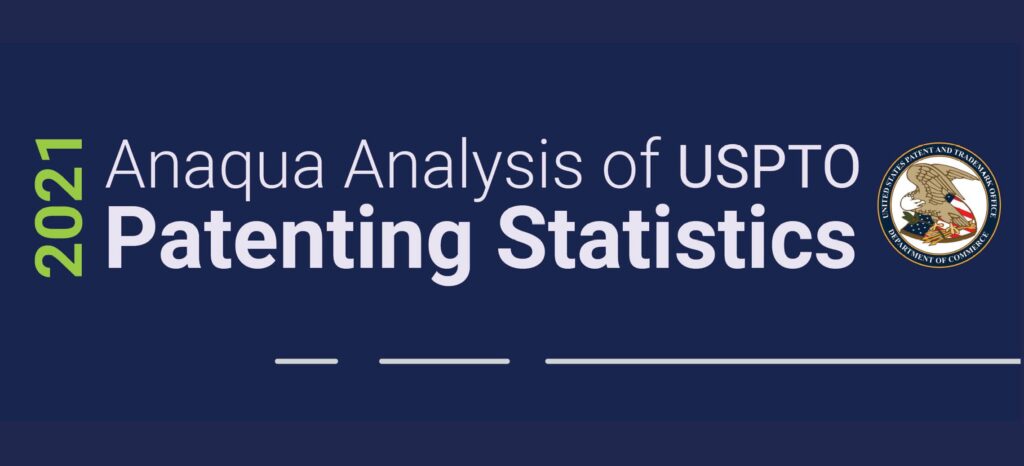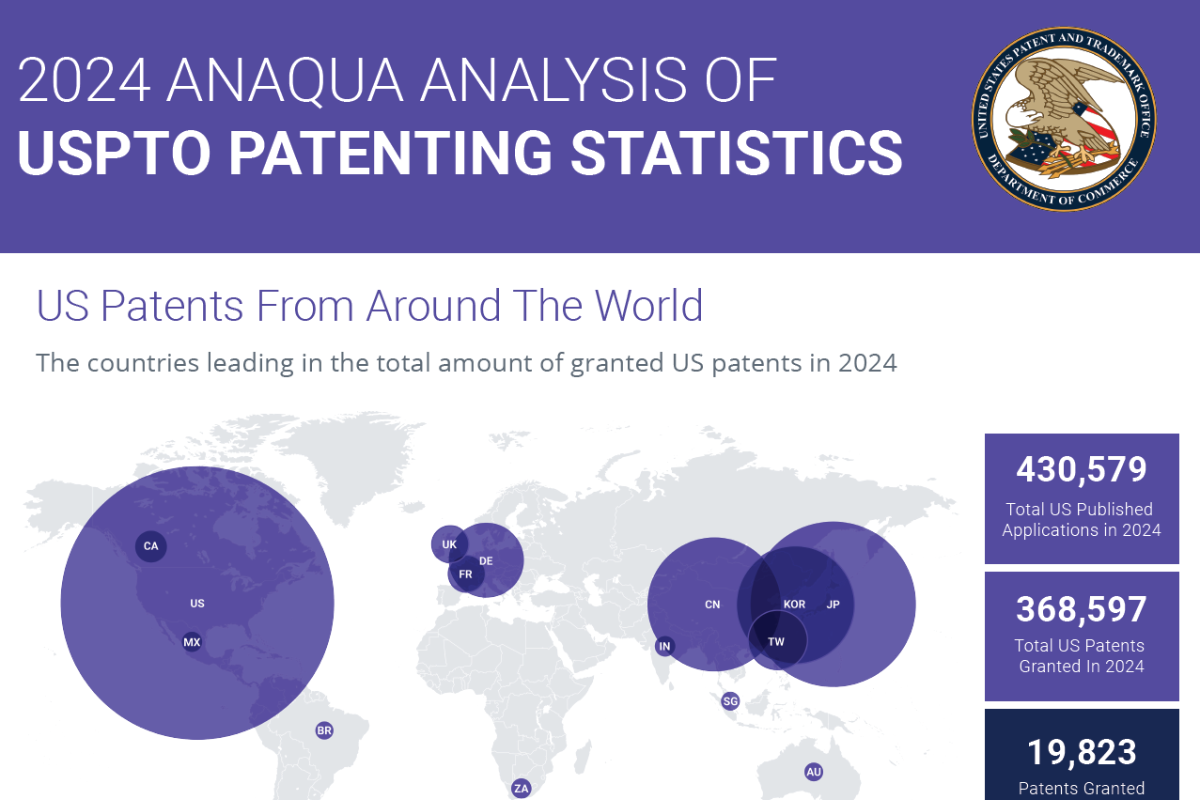According to Anaqua’s annual analysis of USPTO patent statistics, using Anaqua’s AcclaimIP patent analytics software, after two years of US patent grants above 390,000 in 2019 and 2020, indicative figures for 2021 show a 4% decrease to 375,506 for the period December 1, 2020 – November 30, 2021. Compared with 392,616 for 2019 and 390,576 for 2020, this represents the steepest decline in US patent grants in more than a decade.
While it is hard to pinpoint the exact reasons for the fall in granted patents, one can imagine it is partly a result of the direct impact of the COVID-19 pandemic, both economically and administratively. Economic factors may have influenced companies to tighten their IP budgets and reduce patent applications; while, on the staffing side, COVID-related absences and changed working conditions are likely to have impacted not only the corporate patent prosecution process but also the USPTO’s examination timelines.
Nevertheless, despite the decrease in granted patents for 2021, the total number of grants remained well above pre-2019 levels. Regardless of the unique challenges of the COVID-impacted world – and in some cases, because of the need to innovate – the data demonstrates there is still a healthy level of innovation amongst companies from the US and across the globe.
Not surprisingly, US led the way for the total number of granted US patents (170,572) in 2021, but APAC again was well represented in the top five countries with Japan coming in second place (50,673), China third (25,797) and South Korea fourth (24,094). Rounding out the top-five is Germany, the leading European country, with 16,639 grants.
In examining the most innovative companies, calculated by the number of granted patent applications, IBM maintained its long-held leadership position with 8,309 grants. The remainder of the top five most innovative companies were all Asian-based entities, including Samsung Electronics in second place (7,252 grants) followed by Taiwan Semiconductor Manufacturing Co. (3,333 grants), LG Electronics Inc. (3,196 grants) and Canon KK (3,163 grants).
According to our analysis of the top technology fields, the top five were matters related to 5G, virtual reality, wireless communications, the computer-driven handling of user inputs, and semiconductors. Following the top five were program control units, network security, and unauthorized user detection technologies. No doubt the rise in volume and sophistication of ransomware, phishing and network attacks is driving the increased focus on the latter technology areas by the world’s biggest software, hardware and computer-related service providers.
Our analysis also shows the emergence of the first granted matters related to the COVID-19 pandemic since it began in early 2020. While these innovations would not normally appear as granted patents until significantly later due to the 18-month delay in data, inventors and organizations are clearly benefiting from the USPTO’s COVID-19 Prioritized Examination Pilot Program. This program was put in place to help micro and small entities with the filing and prosecution of COVID-19 related inventions, and promises a truly accelerated examination process for these filings.
Overall, our analysis demonstrates that despite the unprecedented challenges thrust upon us by the COVID-19 pandemic, companies from around the world are continuing to innovate at an impressive rate to address those very challenges and solve some of our most complex global challenges.
Methodology: The data for this report was analyzed by Anaqua’s AcclaimIP system, a patent search and analytics software tool leveraging public patent information from the USPTO. The metric used to determine innovative organizations is patent applications published and granted applications over a 12-month period between December 1, 2020 and November 30, 2021.
By Shayne Phillips, Director of Analytics Solutions at Anaqua




